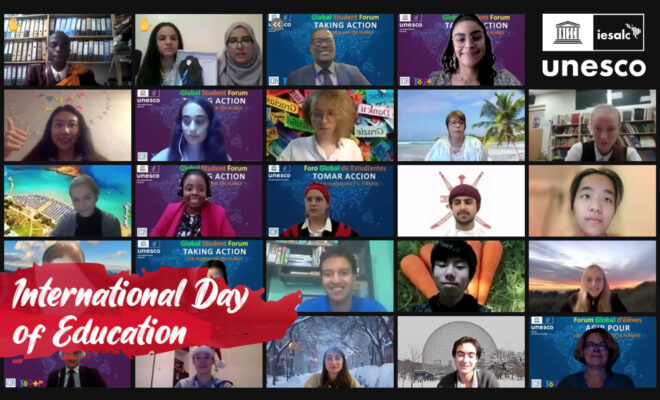On World Teachers’ Day

Every year on this day, we celebrate the teaching profession. And even more so in 2022 because we commemorate the 25th anniversary of the ILO/UNESCO Recommendation concerning the Status of Higher Education Teaching Personnel (1977). It is also worth remembering that this same year, UNESCO promoted two important global events that recall the importance of the teaching profession, particularly in the context of the Agenda for Sustainable Development: the Third World Higher Education Conference and the Transforming Education Summit. Moreover, this year has also been the one in which most higher education institutions have been able to reopen their classrooms after the pandemic.
It is precisely the pandemic that has made the ILO/UNESCO Recommendation more relevant today than ever. First, this reminds us of the duties and rights of teachers. It is good to credit that, in this regard, we have paid much attention to students’ financial and technological difficulties, as well as to the perverse effects that social isolation has had on their health and mental well-being. We have highlighted how governments and institutions have done much more than expected to respond to these needs. But perhaps we have not paid enough attention to the fact that it has been the teaching staff who have been there, beyond what could have been required of them based on their contractual commitments: not only have they fulfilled their duties and obligations, but, often equally lacking in means, they have carried the weight of pedagogical continuity on their shoulders.
Undoubtedly, in the field of teaching, an incalculable leap has been made to the point that now, when the image of the teaching experience in higher education is evoked, rows of seats in the classroom no longer come to mind, but a much more complex scenario, a mixture of hybridization between presence and technological mediation, which is also more demanding for students and, of course, for teachers.
For this reason, on a day like today, rereading the ILO/UNESCO Recommendation reminds us of higher education teachers’ importance in conducting their teaching, research, and extension work in appropriate conditions. Inevitably, it will be necessary to rethink teaching assignments typically expressed in blackboard hours to consider that hybridization is, tacitly or explicitly, a commitment to personalization and tutoring. Such a transformation requires not only a pedagogical response, in terms of mechanisms to support the development of technological and pedagogical teaching skills but also a reconsideration of labor arrangements: what higher education teacher does not live today in a context where their teaching hours are no longer parameterized or appropriately remunerated? Could it be that this teaching fluidity, to call somehow endless days of virtual attention to students already in the post-pandemic scenario, is here to stay? And if so, will this fluidity imply the radical divorce between teaching and research for a good proportion of the teaching staff?
Let us use the celebration of World Teachers’ Day not only to recognize and celebrate their commitment but also to initiate the debate about the transformation of the profession and how to combat the risks of its precariousness. This debate is undoubtedly necessary, but simultaneously, it must be approached with enthusiasm and commitment to building the future of higher education on even stronger professionalism in higher education.
Author
Francesc Pedró
UNESCO IESALC Director
RELATED ITEMS








